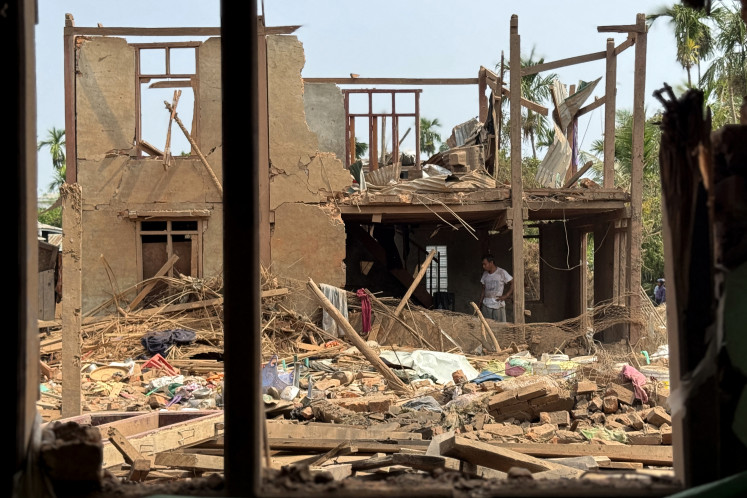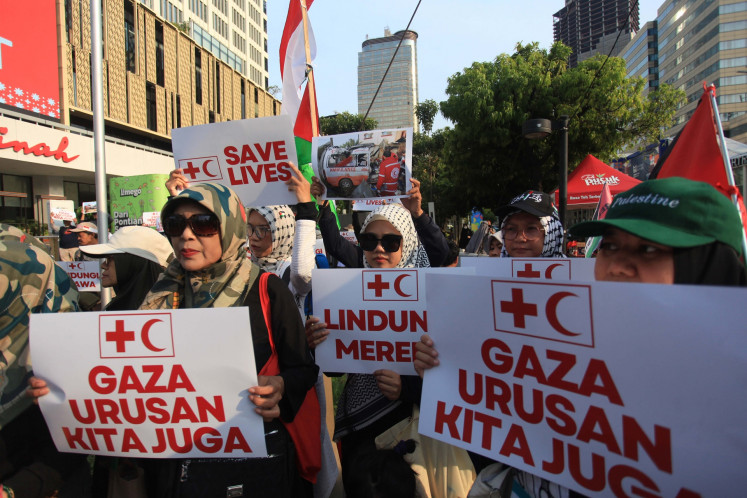What Indonesian middle class politics should look like
In protests, the middle class can provide an opening for a change, but once opportunity arises, it is often not ready to claim power.
Change text size
Gift Premium Articles
to Anyone
 A university student holds a poster saying “Ndasmu“, a highly derogatory Javanese word which translates into “your head“, on Feb. 20, 2025, during an Indonesia Gelap (Dark Indonesia) protest against President Prabowo Subianto's administration calling for various demands, including reviews of government budget cuts and the free nutritious meal program, in Jakarta. (AFP/Yasuyoshi Chiba)
A university student holds a poster saying “Ndasmu“, a highly derogatory Javanese word which translates into “your head“, on Feb. 20, 2025, during an Indonesia Gelap (Dark Indonesia) protest against President Prabowo Subianto's administration calling for various demands, including reviews of government budget cuts and the free nutritious meal program, in Jakarta. (AFP/Yasuyoshi Chiba)
T
he past two years, we have seen increased discussion regarding the middle class in Indonesia, which is seen as a group of professional complainers by economist Chatib Basri (2023).
There are also debates about how they are the “least benefited” social class: The lower class is said to benefit from government social programs while the upper class gets direct economic benefit from government policies, leaving the middle class to fight for themselves. Finally, they are also seen as an untapped political power to protect our democracy. The last notion leads to a question: What should middle class politics look like?
To answer this question, we should first analyze the characteristics of the Indonesian middle class, especially their political traits.
In his book If We Burn, American journalist Vincent Bevins analyzed various mass movements around the world, from Brazil and the Middle East to Hong Kong. He found that while most of the movements that he encountered over the past 10 months were driven by the middle class with the help of social media, instead of leading the country to have a progressive and democratic government, they ended up with authoritarian regimes.
Obviously, Bevins did not blame it all on the middle class. He was rather pointing out how these new waves of activists/movements are not well-equipped politically to form a government.
Those examples are relevant to what Indonesia currently faces. After the 2024 election, movements started to emerge. All of them were heavily coordinated through social media and most of them played into the narrative that urges the middle class to join the movement.
One of the first examples was during the Peringatan Darurat (Emergency Warning) protests in August of last year, in which SCBD workers (a term for people working in offices/white collar jobs) went viral because they joined the protest. During the same protest, we also saw various new types of western pop culture posters emerge. Later at the end of 2024, K-Pop fans (who also consider themselves middle class) took part in the mass protest both online and in-person against the 12 percent VAT policy.
Your Opinion Matters
Share your experiences, suggestions, and any issues you've encountered on The Jakarta Post. We're here to listen.
Thank you
Thank you for sharing your thoughts. We appreciate your feedback.


















